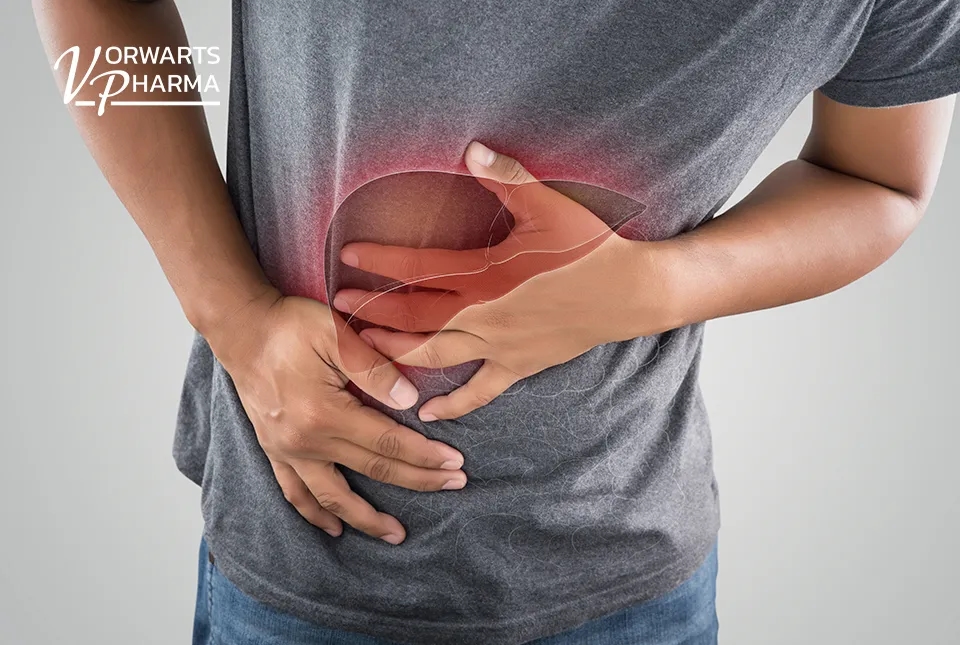Useful articles
How to Manage Constipation After Surgery: Effective Tips
10.12.2025
Osteoarthritis and Muscle Weakness: Why Joints Start to Hurt and What to Do
09.12.2025
Top 10 dietary factors that may trigger heartburn
08.12.2025
Winter and Our Inner Rhythm: How to Navigate Seasonal Adaptation Smoothly
05.12.2025
Effective Diet for Heartburn: How to Stay Comfortable and Enjoy Your Meals
05.12.2025
Constipation in Irritable Bowel Syndrome: Why It Happens and What to Do
05.12.2025
What Damages the Liver Even If You Lead a Healthy Lifestyle
Date: 23.10.2025

We usually associate liver strain with alcohol or heavy food. But even if you don’t drink, eat healthy, and exercise regularly — certain everyday habits can still affect this vital organ.
In this article, we’ll explore the less obvious factors that can burden the liver and share simple ways to support its function naturally.
Lack of Sleep — the Enemy of Inner Rhythm
The liver works actively at night while we sleep. If you regularly get less than six hours of rest, the organ simply doesn’t have enough time to perform its functions.
Lack of sleep increases the level of the stress hormone cortisol, leading to exhaustion, fatigue, and reduced energy.
Medications “Just in Case”
Even common painkillers or antibiotics can put extra strain on the liver. It has to work harder to eliminate the byproducts of these substances.
Fat-Free Diets — Not Always Healthy
It might seem that less fat is better. But healthy fats actually help the liver produce bile and absorb essential vitamins A, D, E, and K.
Eliminating them completely leaves the liver with nothing to process. Include avocados, nuts, fish, seeds, and olive oil in your diet.
Too Much Sugar, Fast Food, and Even a Common Cold
Even with an active lifestyle, an excess of sugar or fast food can disrupt metabolism. Trans fats, sugary drinks, and sweets create extra work for the liver.
Moreover, viral infections or frequent colds can also overload the body. During illness, the liver helps neutralize the breakdown products produced while fighting the virus — which is why you often feel weakness, fatigue, or asthenia even after recovery.
To avoid overload, maintain a balanced diet, stay hydrated, and give your body time to recover after illness.
How to Support Your Liver Daily
- Sleep at least 7 hours and go to bed before midnight.
- Take medications only when necessary.
- Include healthy fats in your diet.
- Reduce sugar and fast food intake.
These simple habits help maintain your body’s natural rhythm and prevent overstrain.

Betargin — Liver Support from Vorwarts Pharma
When the liver works in an intensified mode or the body experiences fatigue, Betargin can help. It’s a dietary supplement containing arginine and betaine — components involved in natural metabolic processes.
Betargin may be useful:
- During asthenia or exhaustion
- In periods of stress or hangover
- For children with acetone syndrome
- To support liver function and detoxification
Available Betargin forms:
- Betargin sachets (10 pcs)
- Betargin sachets (20 pcs)
- Betargin ampoules (10 pcs)
- Betargin ampoules (20 pcs)
The liver works every day without rest, and even ordinary things — from lack of sleep to excess sugar — can affect its performance.
Self-care starts with small steps: rest, balanced nutrition, and mindful use of medications help maintain the body’s natural balance.
Learn more about Betargin on the official Vorwarts Pharma website.
FAQ: Common Questions
- What factors can burden the liver if I don’t drink alcohol?
Lack of sleep, excess sugar, uncontrolled medication use, or fat-free diets can all affect natural metabolic processes. - Why is sleep important for liver health?
During sleep, the liver is involved in metabolism and detoxification. Sleep deprivation disrupts this rhythm and increases stress hormone levels. - Are fats necessary for proper liver function?
Yes. Healthy fats are needed for bile production and vitamin absorption. Without them, the liver struggles to perform its functions. - What is Betargin and who is it suitable for?
Betargin is a dietary supplement from Vorwarts Pharma containing arginine and betaine. It supports liver function, metabolism, and detoxification processes.





